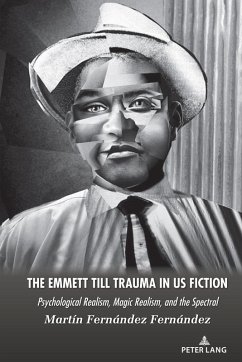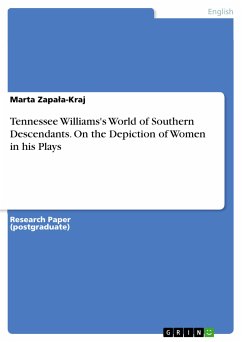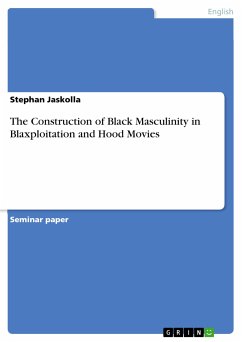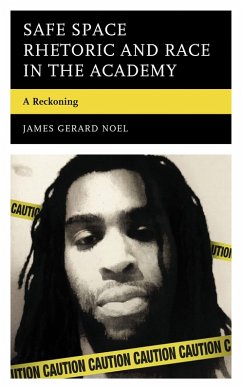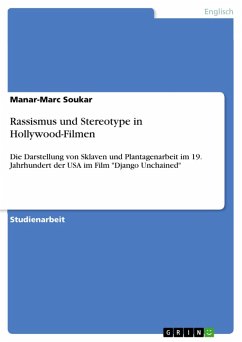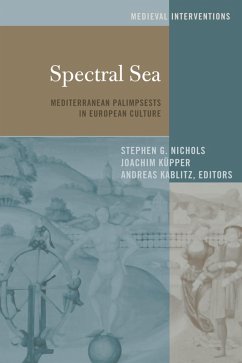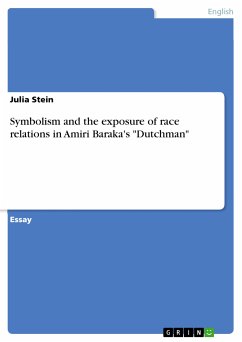
Symbolism and the exposure of race relations in Amiri Baraka's "Dutchman" (eBook, PDF)
Versandkostenfrei!
Sofort per Download lieferbar
Statt: 15,95 €**
13,99 €
inkl. MwSt. und vom Verlag festgesetzt.
**Preis der gedruckten Ausgabe (Broschiertes Buch)
Alle Infos zum eBook verschenkenWeitere Ausgaben:

PAYBACK Punkte
0 °P sammeln!
Essay from the year 2017 in the subject American Studies - Literature, grade: 2,3, University of Mannheim, language: English, abstract: Amiri Baraka was one of the main leaders of the Black Arts Movement and a successful playwright. His play Dutchman was first shown at the Cherry Lane Theatre in New York City in March, 1964 and won the "Village Voice" Obie award. It is an outstanding example of the teachings of this movement by using symbols for race relations and discrimination, which was still present around that time. The focus of this term paper lies on the examination of these symbols as ...
Essay from the year 2017 in the subject American Studies - Literature, grade: 2,3, University of Mannheim, language: English, abstract: Amiri Baraka was one of the main leaders of the Black Arts Movement and a successful playwright. His play Dutchman was first shown at the Cherry Lane Theatre in New York City in March, 1964 and won the "Village Voice" Obie award. It is an outstanding example of the teachings of this movement by using symbols for race relations and discrimination, which was still present around that time. The focus of this term paper lies on the examination of these symbols as indicators of race relations in regard of the call for change induced by the Black Arts Movement. Therefore, the second chapter will approach Baraka's essay The Revolutionary Theatre and the theory of the formation of the Black Arts Movement. It was a call for violence, destruction and exposure of white suppression. Furthermore, there will be a look at the historical context of this movement. The third chapter will involve an efficient examination of the symbols, which Baraka has included in his play Dutchman in order to expose race relations and racism, which were under the surface. This will be followed by an interpretation of the end of the play in regard to the Black Arts Movement and race relations displayed through symbols. Baraka wanted to motivate African-Americans with this play to stand up for themselves and to create their own identity and culture instead of assimilating into a white, racist society. It represents, without a doubt, a milestone in the fight for equal rights through art.
Dieser Download kann aus rechtlichen Gründen nur mit Rechnungsadresse in A, B, BG, CY, CZ, D, DK, EW, E, FIN, F, GR, HR, H, IRL, I, LT, L, LR, M, NL, PL, P, R, S, SLO, SK ausgeliefert werden.




